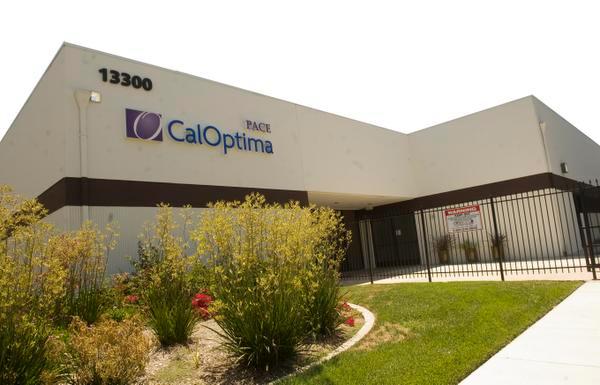
The health insurer for Orange County’s poor, which now covers more than a quarter of OC residents, will embark on a $100 million upgrade to its technology and information infrastructure that it says will allow same-day approval of treatment requests and payment of claims.
CalOptima serves more than 870,000 members who qualify for the state’s Medicaid program, working with a network of hospitals, clinics and doctors that care for them.
Since CalOptima was created in the early 1990s, the technology to support a large health insurance system has advanced significantly, but the agency hasn’t done a major overhaul, so its infrastructure is “kind of a patchwork” with limited ability to handle more improvements, CEO Michael Hunn said in a phone interview.
Some providers are still faxing in paperwork that has to be manually entered into the computer system, and getting approval for, say, a consultation with a specialist can take time, he said. The plan is to build new infrastructure that will save some of that time and labor.
“If I’m the patient, this is great: I’m going, my back hurts, I’d like my back not to hurt. They don’t want to wait to get a treatment authorization three or four or five days later,” Hunn told CalOptima’s board of directors on Thursday, March 17, before it approved the $100 million investment.
The proposal also includes same-day bill payment so providers get reimbursed for their services faster, and it would emphasize digital technology across a spectrum of CalOptima’s services and procedures, such as moving records, billing and other functions to the cloud rather than storing paper or digital files locally.
While the new system would move toward automation and self-service options such as chatbots that can answer members’ questions, Hunn said CalOptima will continue to have humans available to answer phones and help solve problems – and while the online portal for members will also get upgrades, “it’ll just function better and more efficiently” rather than requiring people to learn a whole new system.
Cyber security to protect members’ medical records will be an important piece of the new system, Hunn said.
The board’s vote on Thursday means CalOptima staff can request bids for the work and bring contracts back for approval. The changes will take place over the next three years and are expected to create up to 45 new jobs within the agency. Money for the updates will come from CalOptima’s reserves.
Margarethe Wiersema, dean’s professor of strategic management at UC Irvine’s Paul Merage School of Business, said while she isn’t familiar with the specifics of CalOptima’s plans, cloud-based systems are the way most industries are moving, so it’s not out of left field.
“I don’t think anyone would question the need to have good technology to deliver services, especially in the healthcare system,” she said. “My guess is they still have legacy systems they’ve been patching and patching – that’s why the bill is so large.”
Some patients, when faced with a long delay for approval, may end up not scheduling that additional treatment or consultation, so streamlining the process would be a big plus, Wiersema said.
“When you have shuffling paper going on, it delays things incredibly,” she said.
A same-day approval can provide peace of mind for the patient, said Isabel Becerra, CEO of the Orange County Coalition of Community Health Center and a CalOptima board member.
“It’s critically important to make sure that the patient walks away from their primary care appointment with a date and time, or at least knowing ‘my referral was accepted,’” she said.
Becerra’s concern in the board meeting was ensuring clinics and other healthcare providers are included in the process so they’re able to upgrade their own technology to best work with CalOptima’s new system.
Afterward, she said she looks forward to regular updates on how the agency’s technology infrastructure is coming along.
“At every step of the way we will be looking at it very closely to see that it does transpire as it was proposed,” she said.
Related Articles
Southern California parents of young kids worry as COVID-19 protocols disappear
Santa Ana bans flavored tobacco sales in the city
HHS Secretary Becerra visits Orange County to talk mental health
CalOptima, health insurer for OC’s poor, chooses new CEO
California nears 75% vaccination rate against coronavirus, but stubborn gaps remain
